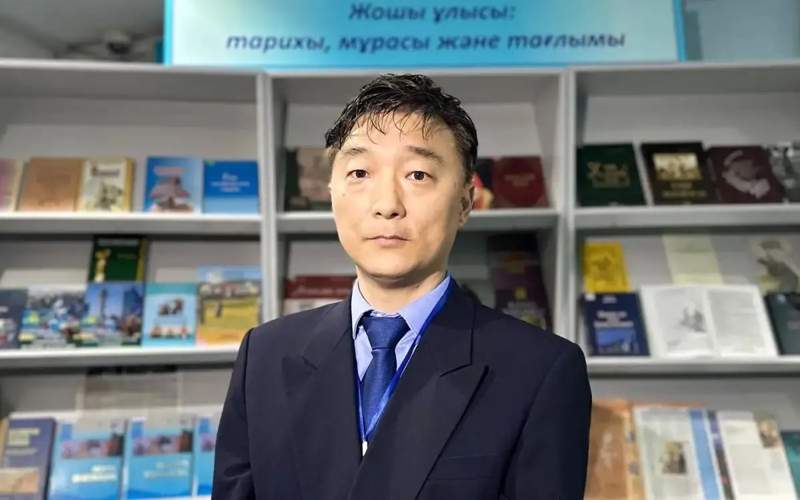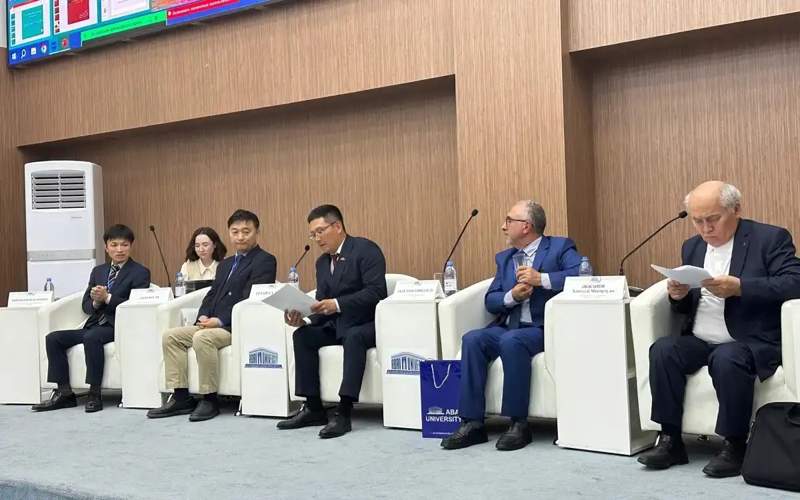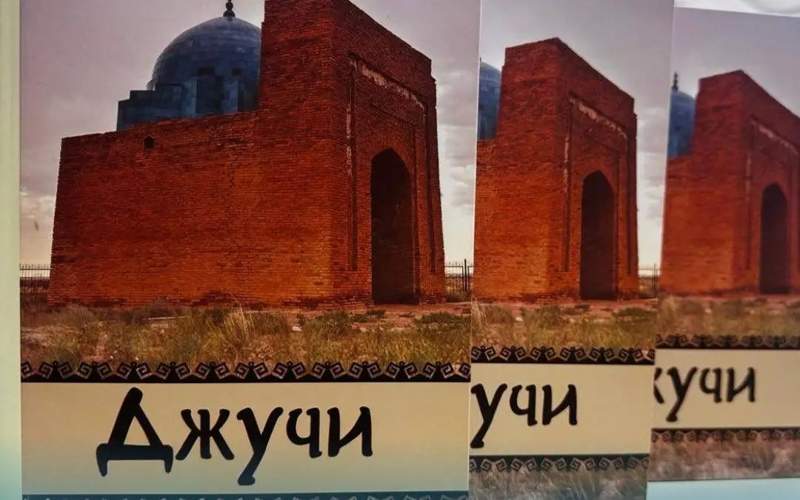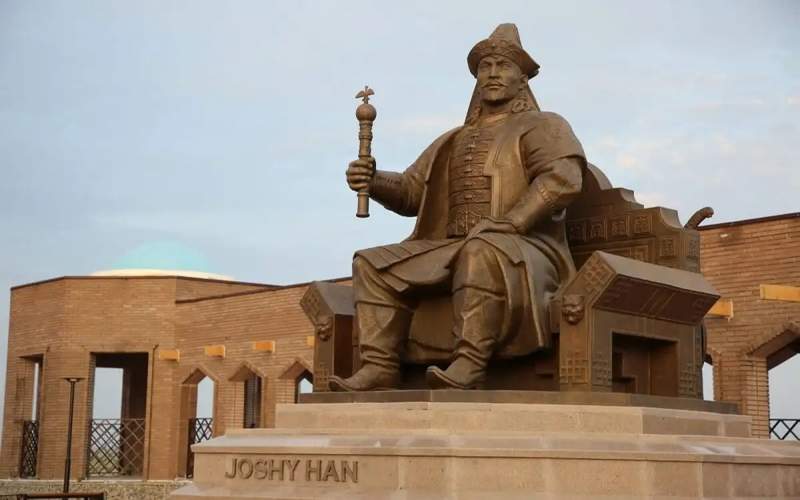Celebrating 800 years of the Ulus of Jochi: Historical studies and revelations

This year Kazakhstan is celebrating a significant event - the 800th anniversary of Ulus of Jochi. This period in the country's history is not only symbolic of its ancient roots, but also attracts the interest of scientists and historians from around the world. In light of this significant event, the need again arises for a deep study of the history of this period, its role in the development of modern culture and statehood, Kazinform News Agency correspondent reports.
Briefly about Ulus of Jochi
Ulus of Jochi or the Golden Horde is the largest state of the Middle Ages, which existed on vast territories of the Eurasian continent from the Irtysh to the Danube.
Jochi was the eldest son of Genghis Khan, the founder of the Mongol Empire. He played an important role during the reign of his father and actively participated in the campaigns of conquest. Jochi Khan ruled vast territories, and his descendants continued to rule the ulus for many years.
Why does Kazakhstan need to study the history of Ulus of Jochi
To date, the history of Ulus of Jochi has not been studied enough, and many aspects require revision. For example, there are significant contradictions between Soviet data and medieval sources, which makes it difficult to create a holistic and accurate picture of historical events.
University of Toronto scientist Joo-Yup Lee, who took part in an international conference in Almaty dedicated to the 800th anniversary of Ulus of Jochi, shared the findings of his research.

“The information in books of the Soviet era largely contradicts the new archival materials that we are now finding. For example, Soviet sources contain information that the Ulus of Jochi was divided into Uzbeks and Tatars. But according to the results of modern research, there was no such division. Medieval historians did not divide the people of Ulus of Jochi into Kazakhs, Uzbeks and Tatars. Therefore, the information in history textbooks needs to be revised,” says the Canadian scientist.
Lee believes that the Kazakh people can be considered the main heir to the ulus created by Khan Jochi.
President of Kazakhstan Kassym-Jomart Tokayev spoke about the importance of Ulus of Jochi at the third meeting of the National Kurultai:
“The Ulus of Jochi occupies a significant place in the tradition of statehood of Kazakhstan, because the past, present and future of our country are closely intertwined with its historical heritage. It is important that the perception of the Golden Horde in the world is inextricably linked with Kazakhstan,” says the president.
He also noted that the geopolitical legacy of this medieval power served as the basis for the emergence of a number of Eurasian states, including the Kazakh Khanate.
Thus, reviewing historical data is an important step towards a deeper understanding and objective assessment of the past. This not only eliminates existing contradictions, but also contributes to the preservation of cultural heritage, strengthening of national identity, as well as popularization of the history of Kazakhstan in the international arena.
What research on Ulus of Jochi is currently underway
Currently, various research projects and initiatives are being conducted in Kazakhstan aimed at studying the history of Ulus of Jochi. Scientists and historians work to fill gaps in knowledge and offer new interpretations of known facts.
“The history of the Golden Horde has been studied for more than one century. The main issue here is the availability of sources, the possibility of their competent translation, and the conduct of scientific work. In this regard, a lot of work is being done in Kazakhstan. By the way, a new department has been opened at Abai Kazakh National Pedagogical University – «History of Ancient and Medieval Kazakhstan». Thanks to this, young scientists can now study the history of their country and ancestors from a new perspective,” says Nurlan Atygaev, head of the department of ancient and medieval history of Kazakhstan at KazNPU.

Thus, on May 22, an international conference dedicated to the 800th anniversary of the Ulus of Jochi was held at the Abay Kazakh National Pedagogical University entitled “Ulus of Jochi: history, heritage and lessons” in Almaty. The meeting brought together domestic and foreign scientists, including representatives of Russia, Canada, Japan, Türkiye, and Germany, engaged in research into ancient history and the Middle Ages.
The forum participants discussed issues of historiography of the Golden Horde, economic and cultural history, geography, diplomatic experience of the Ulus of Jochi, the role of the Golden Horde khans in international relations in Eurasia and other topics. One of the goals of the conference was the need to create a scientific base for further research into the history of the Ulus of Jochi.
“The history of Ulus of Jochi is unique in its own way, since it is the history of different cultures, peoples and religions. The Golden Horde covered the entire central part of Eurasia. Many institutions of the Kazakh Khanate were borrowed precisely from the political organization of the Golden Horde. In terms of political organization, military construction and even state ideology, the Kazakh Khanate became the legal successor of the Golden Horde,” notes Atygaev.
In February of this year, the «International Scientific Complex Astana», together with the Scientific Institute for the Study of Ulus of Jochi of Committee of Science of the Ministry of Science and Higher Education of the Republic of Kazakhstan, presented a book dedicated to Jochi. The author of the book is candidate of historical sciences, independent researcher, author of three scientific monographs on the history of the Ulus of Jochi Artyom Aleksandrovich Porsin.

This is the first book about Jochi, dedicated to his life and political activities in the context of censorship and political propaganda operating in the Toluid uluses of the Mongol Empire. The book describes his birth and origins, relationship with his father, and also shows Jochi's role in the Mongol offensive to the West, as well as his status as heir. Most of his life was spent in the steppes of Mongolia and Kazakhstan (1184 - 1225).
A multivolume book on history of Kazakhstan is also being prepared, meeting the most modern scientific approaches. The book was initiated by the President of the country in January 2021 in his article “Independence above all.”
The project involves 5 scientific institutes, more than 250 kazakhstani and more than 60 foreign historians. The multivolume book will include materials from more than 40 archaeological studies, about 300 publications on history, archeology and ethnography. As part of the preparation of the multi-volume book, sections were held at international forums, a number of scientific conferences, round tables and methodological seminars, at which scientific research results were tested and recommendations were received from scientists, experts and specialists. It is expected that the book will present new information about the Ulus of Jochi.
What problems do researchers face
At the international scientific and practical conference in Almaty, participants also reported on the problems associated with the study of the history of the Ulus of Jochi. Studying the Ulus is difficult due to the shortage of specialists capable of working with ancient documents in already extinct languages.
About how the international community is interested in the history of Ulus of Jochi
The participation of researchers from all over the world in the study of the Ulus at conference confirms that the international community is showing significant interest in this topic. This interest is due to several reasons.
Firstly, the Ulus of Jochi played a key role in the development of the Eurasian region, influencing political and cultural processes.
Secondly, studying this period helps to understand how different cultures and peoples interacted and united, creating the basis for the modern diversity of the region.
Thirdly, the historical heritage of Ulus of Jochi represents an important element of world history, contributing to the understanding of global historical processes.
Thus, Abdullah Gundogdu, a professor at Ankara University, speaks of the significant influence of Ulus of Jochi on the history and political processes of many states of those times.
“The famous historian Karamzin argued that the Russian Empire borrowed its form of government and policies from the Golden Horde. The history of the peoples of the Russian Empire and all of Eurasia is closely connected with the history of the Ulus of Jochi. The statehood of Kazakhstan also originates in the Golden Horde. The Kazakh Khanate, which arose on the basis of the Golden Horde, has strong historical roots,” Gundogdu believes.
The International Institute of Central Asian Studies (IICAS) also shows interest in the history of the Ulus of Jochi, having published a collective monograph “The mausoleum of Jochi Khan: The history of research”, written by an international team of authors including E.R. Usmanova, K.Z. Uskenbay, M.B. Kozha, I.P. Panyushkina.
The monograph presents a comprehensive analysis of the study of the Jochi Khan mausoleum (Ulytau region, Republic of Kazakhstan) of the Golden Horde era. The publication consists of four chapters and six appendices. The book analyzes the biography of Jochi, based on resources and modern historiography, shows his role and place as a military leader in the Mongol Empire, examines issues related to the history of the discovery and dating of the mausoleum of Jochi Khan, with its archaeological and historical-architectural study, stages of restoration; and provides information about the mausoleum of Jochi Khan from late medieval Muslim writings and Russian sources of the 18th - 20th (first quarter) centuries.
It also became known that the Fund of Presidential Initiatives Dara in cooperation with Karga Seven Pictures proceeded to create a new hybrid documentary TV series in English in six episodes dedicated to the life of Jochi Khan.

It will feature the stages in the development of the Golden Horde through the prism of the history of the life of Jochi Khan. The documentary production will begin this autumn in Kazakhstan and Türkiye.
